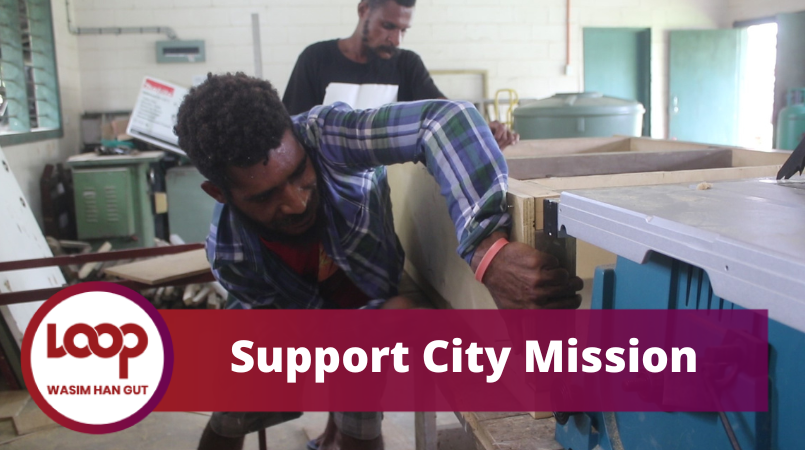
The community in Lae is encouraged to get behind City Mission and support the work that they do.
The Christian non-government organisation of City Mission has its vision of “Spreading the love of God and meeting human needs” to guide its day-to-day activities.
Founded by Larry George, City Mission has been operating in PNG for over 25 years, where they take the most at-risk young men out of settlements and villages and train and educate them, protect women in gender-based violence situations, care for abused, abandoned and orphaned children and also work with young women.
City Mission is headquartered in Port Moresby and has two other setups in Morobe and Madang provinces.
In Morobe, the organisation is located outside Lae city, where up to 161 young men are counselled, go through life-skill development for an average of 16 months, take up trades and are also taught basic literacy.
“City Mission, what mipla mekim lo hia is, mipla wok wantem ol yangpla man weh ol homeless, drug addicted or going through sampla kain problems weh em no helpim laif blo ol. Mipla bringim ol kam aut lo strit, mipla bringim ol kam lo hia na mipla wok wantem ol,” explained program coordinator, Henry Paul.
“Main focus blo disla hap weh mipla traim lo helpim ol lo em is, helpim ol lo senis, kam lo save lo Bikpla. Em nambawan samting.”
Currently, 159 young men are at City Mission Lae.
Paul goes to the Seventh Street ward council office every week, where he conducts interviews with potential intakes.
“Afta lo interview, that’s where mipla aidentifaim which one em really nidim help lo kam insait lo program and ol narapla weh mipla no lukim olsem em not really needed or priority blo mipla, mipla just putim ol lo waiting list.
“Mipla just enkarijim ol lo go kam na chek ap.”
Spacing also determines the number of intakes, with Paul saying even if the youth is listed as “priority”, they will have no choice but add him to the waiting list.
The program has five different stages that the young intakes go through. The first is the one-month candidate phase, which is like an orientation program where the boys are taught the rules and policies of the mission, including its function.
“Lo ol lo muv go antap lo phase one, mipla sa greidim ol; which one em redi lo muv go antap, which one em no redi lo muv go antap. I gat sampla ol mak i stap, sapos em no inapim disla mak den mipla nid lo ripitim em lo candidate phase.”
Spiritual programs and counselling fall under phase one while phase two involves security training, kitchen, grounds keeping and livestock rearing, where poultry farming also falls under.
Phase three is when the boys undergo four months of trades training such as electrical, carpentry, welding and mechanical. They attend theory and practical lessons for three months, while one month is for writing CV and letters of interest lessons, including on-the-job training.
Phase four is when the boys are prepared to integrate back into the community, and the program also helps them to secure employment.
Since City Mission is an NGO, they survive on donations from business houses and other stakeholders.
The program coordinator is appealing to business houses to consider boys from the City Mission when they have vacancies for tradesmen.
